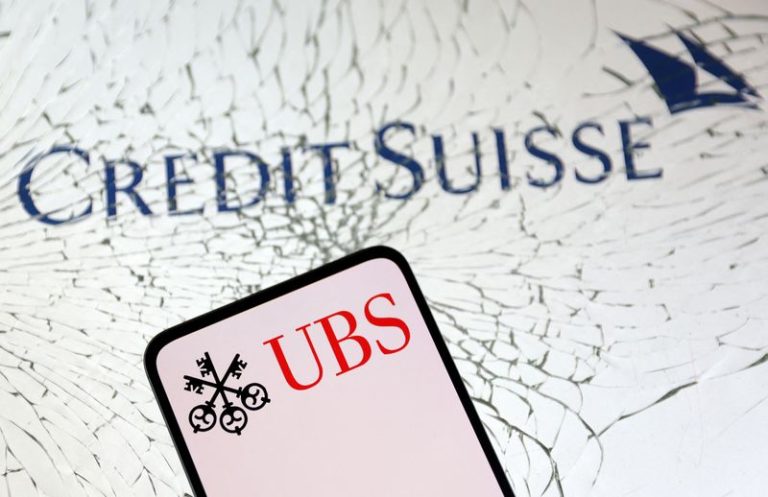Since the start of the week, even market watchers have had a hard time hiding their surprise at the euphoria on the Tel Aviv Stock Exchange (TASE), which is breaking records in the midst of the war with Iran. The Tel Aviv 35 index rose by about 3% in the first three trading days of the week, despite the ongoing missile attacks, with the gains led by the local construction stock index, which jumped by about 13% (as of Tuesday afternoon).
IBI Investment House CEO Dave Lubetzky says he is less surprised by this given the lively activity on the TASE from private investors. In recent days, when most employees have been confined to their homes due to Home Front Command restrictions, Lubetzky, with a small team, has been managing the entire operation of the investment house, which is already trading at a value of more than NIS 3 billion, from his offices in Tel Aviv’s Shalom Tower.
He reports hundreds of inquiries daily to open private trading accounts – what could perhaps be called “trading from the bomb shelter,” reminiscent of the rush by retail investors to the stock market during the covid pandemic. IBI’s independent trading operations had about 60,000 clients at the end of March. “I was surprised by the interest people had in opening new accounts,” Lubetzky says. “When I arrived at the office on Tuesday morning, I was sure they would say they had opened two or three accounts, but we are at a triple-digit (daily) rate.”
What is the explanation for the rush, are they bored at home?
“Yes, people are a little bored at home and some already wanted to do it before (open a share trading account). The rate of opening accounts now is routine, and this shows how much the economy has become accustomed to a state of war. I should point out that it’s a digital service anyway, so if you have a moment to join, it’s convenient.”
Are these also the investors responsible for the stock market’s jump in recent days?
“I’ll tell you who it isn’t: the institutional investors (pension funds and provident funds). The markets are moved by retail investors (the general public) through the purchase of mutual funds (active or those that track stock indices), or retail investors who buy specific stocks.
“The institutions in Tel Aviv trade in top-tier stocks. The movement we’ve seen in recent days is from retail investors and also options players. As for the latter, they ultimately play on the sentiment in the market and amplify it. As for retail, such investors do their own calculations whether to buy ETFs (that track stock indices) or active (managed) funds.”
RELATED ARTICLES
Lubetzky adds, “The market is currently seeing the scenario of a decrease in geopolitical risk and pricing it in at full price. The story of the cost of war in Israel is expensive, but the public is calculating that overall we will be safer here. As far as is known, foreign investors are still completely out, so from the perspective of the Israeli investor there is a certain logic that if things calm down here, they will return to the foreign money market, and then the markets will be able to climb another level. The market treats the war as an investment that can be leveraged. It is possible that everyone here is a little bit intoxicated with the successes in the war arenas.”
How do you characterize the behavior of retail investors?
“From event to event that happens here, I get the impression that investors don’t do stupid things. I look at the public’s stock portfolios, and I see that they buy mutual funds that track indices or at most choose 2-3 more stocks for their investment portfolio. It’s not gamblers who come here, but balanced people.”
Do you admit that independent trading through the banks is more expensive?
“There is a bit of Americanization here. There, people hold a bank account and at the same time use broker services to invest in securities. This is happening today in Israel among people aged 30 and over, for whom the bank is no longer an option. It also has to do with technology, service, availability and the data they receive. It is a service that is not a replacement for banks, but something that people have in addition.”
“Changing tastes in real estate”
Lubetzky is not surprised by the jump in construction stocks, projects and home finishing products, some of which have been in double digits since the beginning of the week, and thinks that there is a significant change here: “Eyes should be turned to residential construction stocks, because there is going to be a change in tastes here. I think people understand that the issue of houses without protection, despite all the positive scenarios (for an end to the war and the removal of the Iranian threat), is something that makes no sense. Today we see the difference between modern buildings that were hit by a ballistic missile, and old buildings that were hit not far from them by a missile, and they simply collapsed. The planning authorities will have to change gear. And demand will also take that into account.”
Do you see a change in the way the housing market is conducted?
“Yes, there were buildings where tenants fought for years over the TAMA (building reinforcement) plans, This one wants an extra meter for the kitchen, another wants a balcony. Suddenly people are getting caught up in the war, wondering why they didn’t get to live in a new building today. The companies that operate in the field of urban renewal are bound to arouse interest. If we were on the path of falling housing prices, I think there would be a change in demand here. In my opinion, apartments without a TAMA in the central region are a very unmarketable product, with no TAMA in sight.”
He adds, “People now understand the cost of running to a public shelter, and I think the TAMA companies will receive a lot of calls as soon as everything calms down. The local authorities will also probably become more cooperative. They also understand there that it is dangerous to live in old houses without protection.”
How do you see the situation of other sectors on the stock exchange?
“It seems that the rest of the economy is working fine, meaning that most services are functioning and this is reflected in the stocks of the various industries. Those that are affected are mainly hotel, tourism and leisure companies, for which normal activity is a function of the duration of the war. Unfortunately, this is already the third round for them.”
“The capital market is cynical”
Since the start of the week, the dollar has fallen by about 3% against the shekel – from over NIS 3.6/$ (on Friday) to about NIS 3.5/$ on Tuesday – its level on the eve of the attack in Iran. “It didn’t surprise me,” says Lubetzky. “As soon as there is an feeling among the public that this operation is a success, despite the great disasters on the home front, with the Iranian missile strikes, foreign exchange trading and the stock market are already looking ahead. The capital market is cynical.”
What changes, if any, should be made to investment portfolios?
“Geopolitical events, in the long run, should not change people’s allocation in their investment portfolio. So, just as it was wrong to be 100% invested in the S&P 500 index before, you should not dream of a new Middle East and be 100% invested in Israel now. The worst points to allocate investments at are these points in time. Because there is a tendency to paint everything either black or rosy.
“Anyone who wants to be in the market with a balanced portfolio and take advantage of these days in the secure room, let them do so. But anyone who wants a portfolio that is entirely invested in urban renewal stocks and defense industries – they will probably lose money. An investment portfolio should be balanced under the assumption that we live and spend our money in shekels. The right way to do this does not change depending on this or that military operation.”
Published by Globes, Israel business news – en.globes.co.il – on June 18, 2025.
© Copyright of Globes Publisher Itonut (1983) Ltd., 2025.








